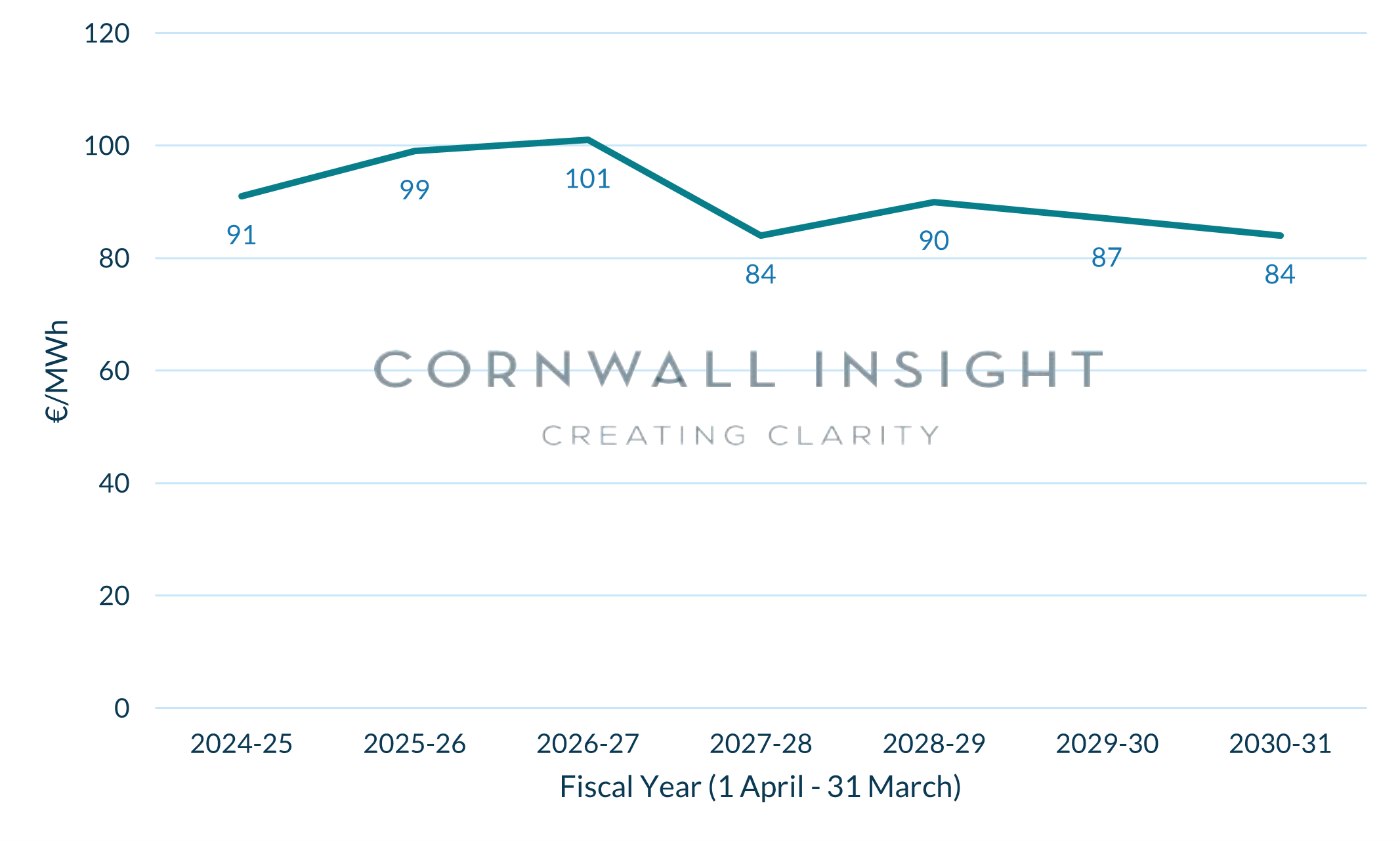This news is positive for both households and businesses, with the trickle down of lower power prices potentially leading to cuts in energy bills.
Cornwall Insight’s power price predictions for 2024-25 have been falling for the past few months. The mild winter coupled with ample gas stocks in Europe have reduced the need for a gas injection over the summer to meet targets, meaning gas prices continue to fall.
Despite the fall, the impact of Europe’s increased reliance on Liquified Natural Gas shipments following the sanctions on imports from Russia, are expected to keep Irish prices above historic averages.
In the medium-term, prices are expected to remain between €90/MWh and €100/MWh. Prices will gradually decrease towards the end of the decade as more renewables are built to meet the 80% renewable generation target by 2030, replacing capacity provided by higher marginal cost coal and oil-fired plants.
While the growth in renewables does lead to a small reduction in prices from 2028-2029, the fall in prices is tapered by increasing demand and the completion of the Celtic and MaresConnect interconnectors, which results in Ireland becoming a net exporter of electricity by the early 2030s.
Figure 1: Power price forecast - average price per fiscal year (€/MWh*)

Source: Cornwall Insight
* €/MWh in real money 2022-2023 prices
Tom Musker, Modelling Manager at Cornwall Insight:
“Our forecasts continue to paint a brighter picture for power prices, with this year’s average power price now expected to be lower than 2023-24. This can only be good news for Irish consumers, who despite recent energy price falls, are still grappling with high energy bills during a cost of living crisis. With prices forecast to remain comparatively stable over the decade, there's cautious optimism that these price drops aren't just a temporary blip but rather symbolic of a sustained trend.
“Of course, it’s crucial to stay realistic, Ireland’s dependence on imported energy leaves the country, and much of Europe, at the mercy of global energy price fluctuations. While the energy market remains relatively stable at the moment, unforeseen events could once again shake up the system and lead to spikes in prices. This underscores the importance of Ireland prioritising investment in renewable energy generation. Doing so will help to deliver energy stability and security, without the risks associated with a heavy reliance on imports.”